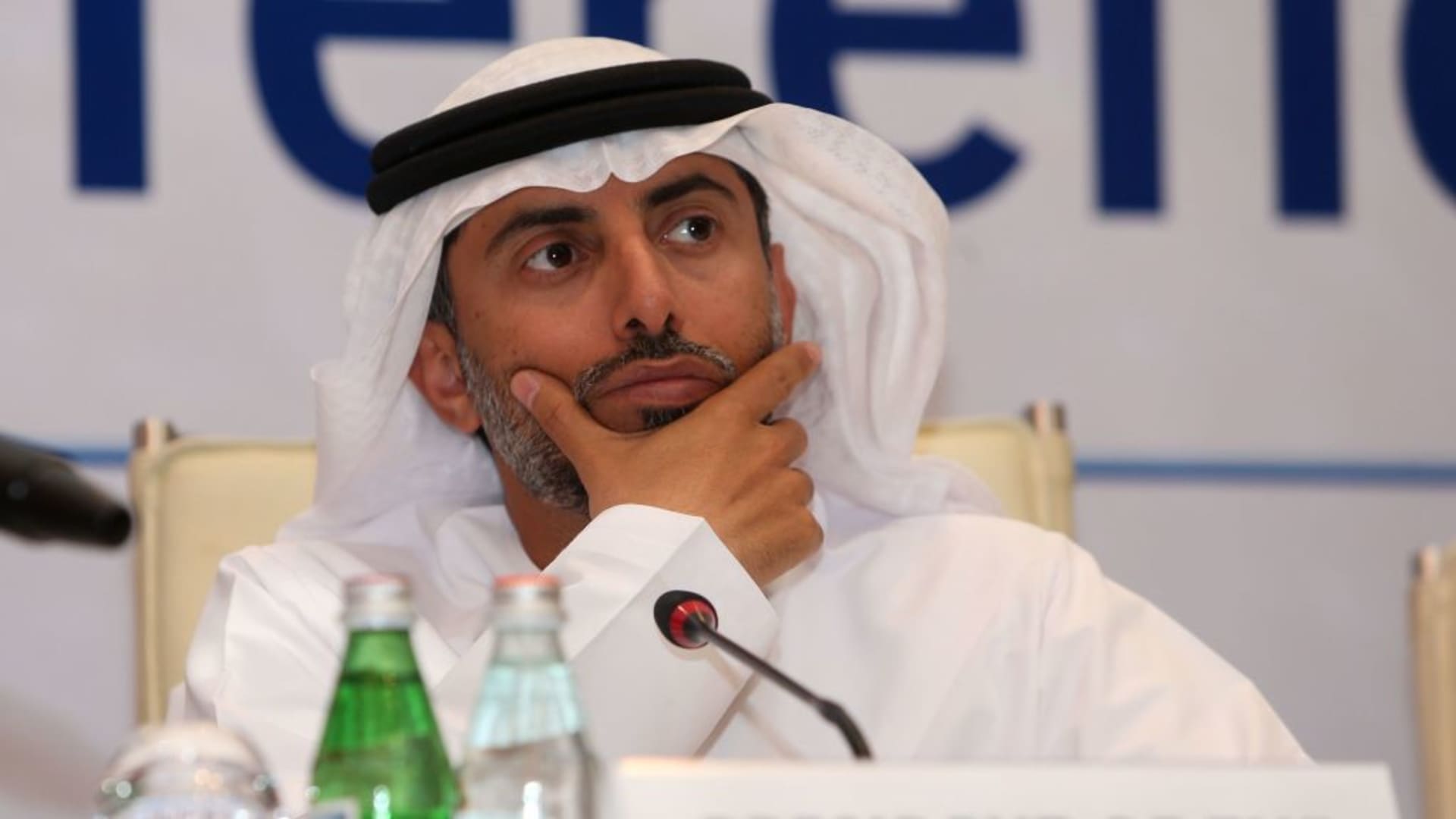
United Arab Emirates’ Energy Minister Suhail Mohamed al-Mazrouei at a press conference in January, 2018.
MOHAMMED MAHJOUB/AFP/Getty Images
Failure to address energy affordability risks casting significant portions of the world into poverty and stagnating the global economy, according to the United Arab Emirates Energy Minister Suhail Al Mazrouei.
Soaring energy prices have caused inflation to spike around the world and triggered cost of living crises across both developed and emerging economies.
Speaking to CNBC on Tuesday at the World Government Summit in Dubai, UAE, Al Mazrouei voiced concern that the global focus on geopolitics and energy security was leading governments to overlook the long-term implications of declining affordability.
He said leaders of the OPEC+ organization of oil-exporting countries were trying to maintain order and bring resources to the market at a manageable pace but suggested this was becoming increasingly difficult.
“For that to happen, we need resources – financial resources – we need to invest and we need to decouple politics from energy availability and energy affordability,” Al Mazrouei said.
“I’m worried that because we are mixing the two, we could end up in a situation where energy affordability becomes an issue and that would definitely lead ultimately to poverty, and ultimately could lead to a stagnation of the world economy. We are trying, but we cannot be blamed for everything – we are doing our best.”
Oil and gas prices have surged since Russia’s invasion of Ukraine, but Al Mazrouei noted that the focus previously had been on sustainability and the energy transition, which combined with a demand slump due to the Covid-19 pandemic, caused prices to slump to historic lows in 2020.
OPEC+ at the time responded with record production cuts, but Al Mazrouei said the next issue to address beyond securing supply would be securing affordability.
“I am sure the next is going to be energy affordability and resources, in that sense, because food security is becoming an issue and industrial commodities or minerals are becoming an issue as well,” he said.
“So the risk I see, or the danger, is poverty which could lead to people having to go and join those terrorist groups.”




